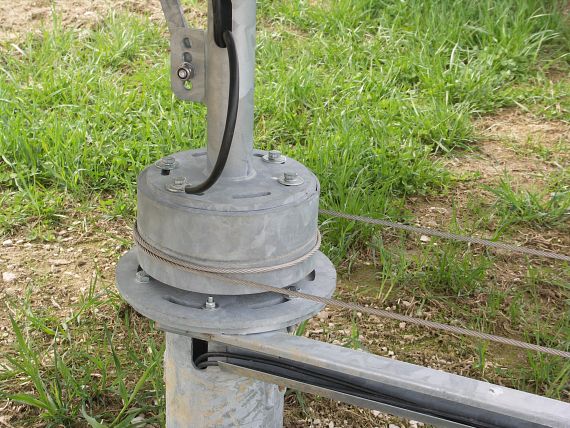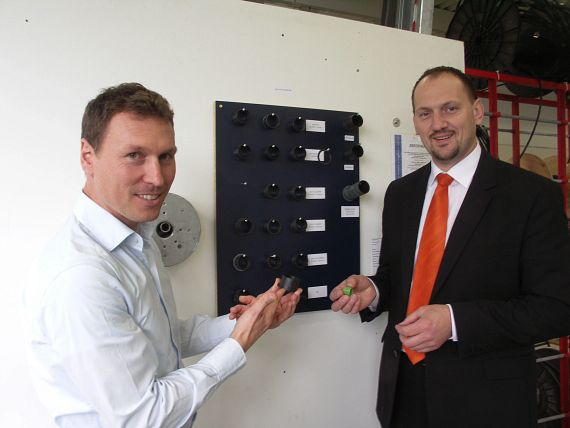Indiquez-nous votre code postal, et nous vous dirons aussitôt lequel de nos collaborateurs pourra vous aider.
"The basic idea of our company was to implement sun tracking in a cost-effective way and efficiently with a smart technology," explains Thomas Vogel, CEO and company spokesman of TecnoSun Solar Systems AG in Neumarkt/Upper Palatinate. The company, founded in April 2010, is a manufacturer of photovoltaic (PV) systems with around 12 employees.
The location of the company's headquarters is favourable: The prevailing conditions in a city that focuses on renewable energies offer good opportunities for the young company. As the decentralisation of the electricity markets remains an important issue for the future, it is primarily local authorities and municipalities, but also private investors, who are focusing on renewable energy.
Tracking systems for PV systems (trackers) are systems that are independent of the alignment of the base area. They follow the course of the sun during a day and thus create an optimal angle between the sun and the solar module, thus optimising the utilisation of the modules.
The additional yield through the use of a tracking system has been proven to be up to 40%. A significantly higher performance and a consistent power output is achieved throughout the day. "In the past, tracker systems have often been used with disadvantageous arguments," says Thomas Vogel. "They are generally regarded as too expensive and, due to their size, spoil the landscape, as they are usually several metres high. We went a different way and wanted to keep the installation height low, which also reduced the costs very much compared to other systems."
The advantages of the tracking systems of this supplier are accordingly quickly brought to the point: they include the low installation height of around 1.5 m and the associated material efficiency. This means that the PV systems can be easily integrated into the landscape and offer a low wind-exposed surface. Then there is the drive concept. Up to 120 trackers are operated with only one motor. This corresponds to a module area of around 400 m2. This enabled the system costs to be reduced significantly.
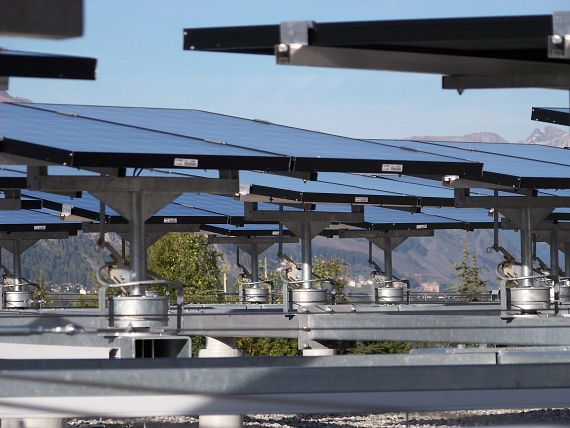
Normally, a tracking system with concrete elements is anchored in the floor surface, which at some point must be laboriously removed. "Our anchorage consists of ground screws, on which the relatively simple mechanical system, a pure metal structure, is built," says Thomas Vogel. The friction in the system is completely negligible. This is ensured by the lubrication-free polymer plain bearings from igus GmbH, Cologne. There is almost no application where the lubrication-free bearing technology does not prove its versatility.
Three unlubricated bearings each are used between the drum and the traction ring, the base plate. "At this point we were looking for a high-quality, high-performance solution, which on the one hand had to run completely dry and on the other hand must not be susceptible due to the ambient conditions," Thomas Vogel looks back. Plant operating times of several decades are part of the requirement profile. And if the worst comes to the worst, the plain bearings must be able to be replaced quickly and easily as part of maintenance and repair work.
The all-round material iglidur P meets the requirement profile. Due to thermal stability and low water absorption, these plain bearings are among the most dimensionally stable bearings under varying environmental conditions. It is generally recommended for rotational movements at medium to high loads. It is also cost-effective, which is favourable in terms of financial considerations.
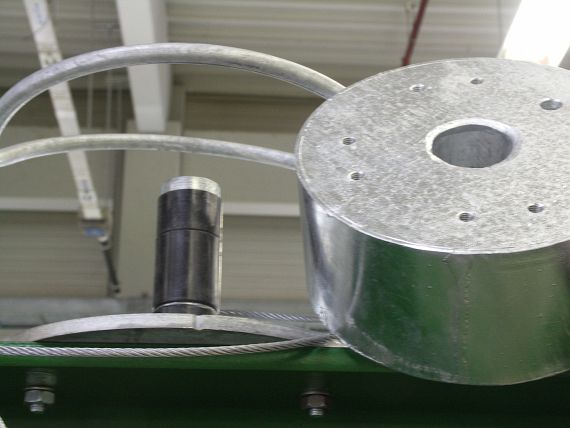
"In the run-up to the plant development, we carried out a complex series of practical tests with a wide variety of bearings in order to be able to make reliable statements on the behaviour under load. Various suppliers presented their products," says Thomas Vogel. "The test results have always been technically unambiguous in favour of the lubrication-free polymer plain bearings. Added to this is the good price/performance ratio and the comprehensive support. Our responsible contact person in the field, Bernhard Hofstetter, is in constant dialogue with us and informs us about new and further developments so that we are always at the cutting edge of technology. “
The requirement profile for plain bearings is extremely high. They must be resistant to weather for decades, be able to deal with dirt and moisture, and must be easy to assemble. Weight due to snow loads also plays a role. For this purpose, they are subjected to heavy loads in some areas, as relatively strong rotary movements act on the basic mechanical structure. In addition, tensile strains occur at the corners where the rope pulls, which can amount to several 100 kilos.
Before deciding which material is best suited for this requirement profile, the polymer supplier also carried out various load calculations and recommended the material iglidur P according to the exclusion procedure.
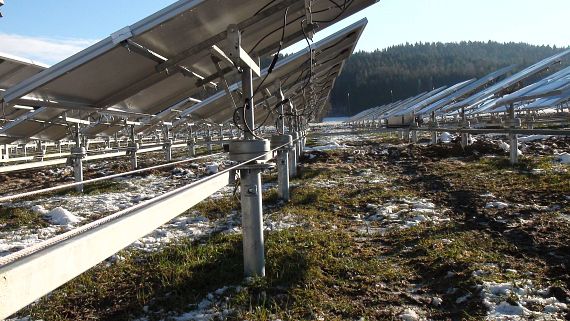
Before deciding which material is best suited for this requirement profile, the polymer supplier also carried out various load calculations and recommended the material iglidur P according to the exclusion procedure.
In contrast to applications in mechanical engineering, the non-pressed plain bearings rotate around fully galvanised surfaces. Due to the necessary installation tolerances, there is therefore a residual risk that the bearing may be jammed both externally and internally. Here, too, the advance tests have shown that the polymer plain bearing has no problems with this. The bearings run in the tracking systems from the first day without unnecessary downtime.
"Our standard material iglidur G, which has proven itself in countless applications worldwide, was also up for discussion," reports the responsible technical sales consultant of the igus office "Bayern Nord-Ost", Bernhard Hofstetter. "We first carried out initial sampling. But due to the lower water absorption and thermal expansion, the decision was finally made in favour of the material iglidur P. “
